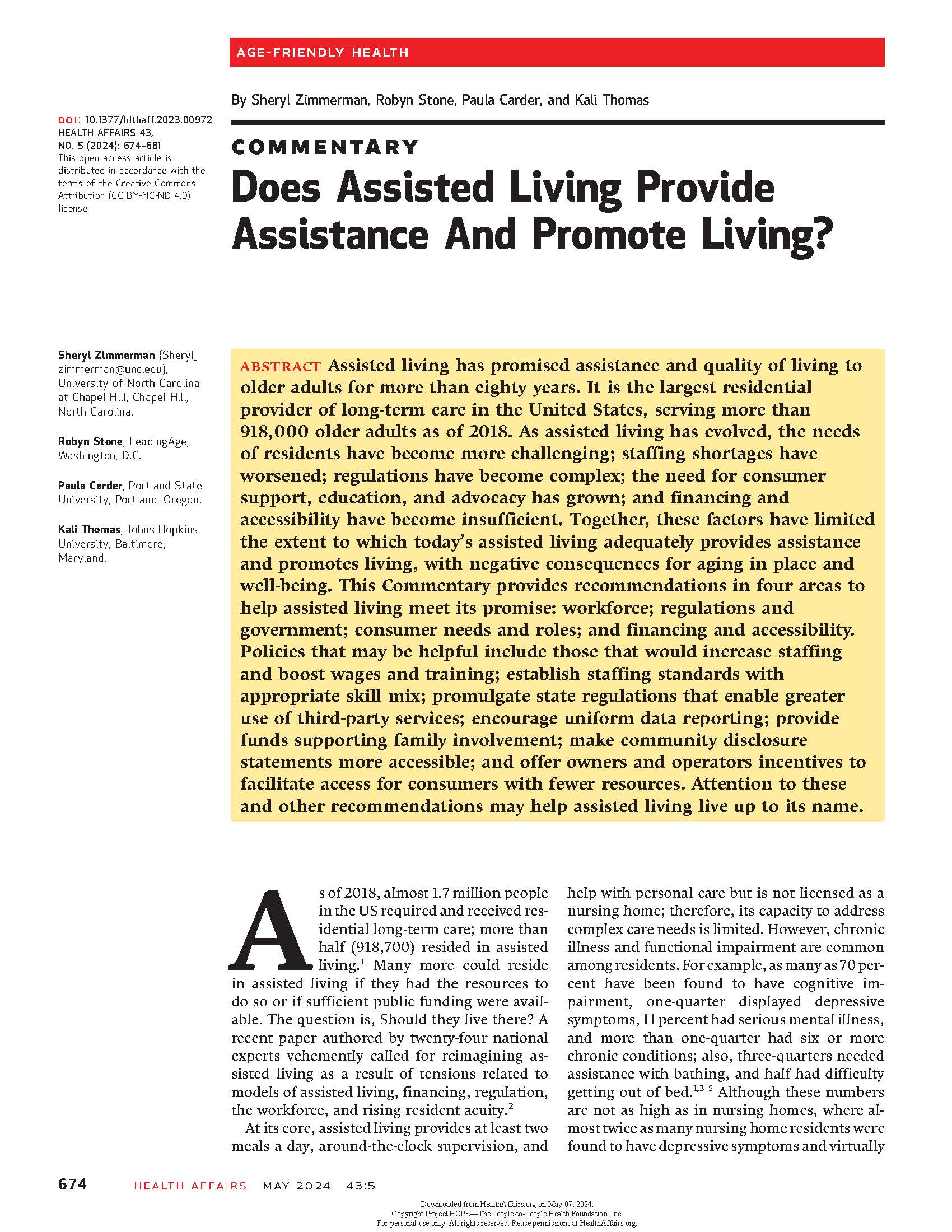States vary in their coverage of services in assisted living (AL) settings which may impact whether AL residents can remain in what they consider their home. Previous research found an association between state Medicaid financing and access to AL for beneficiaries dually eligible for Medicare and Medicaid. In addition, research found that among AL residents who were still in AL 90 days before death, dual eligible beneficiaries were less likely to die in AL compared to non-dual beneficiaries. A recent Washington Post article entitled “Assisted-living homes are rejecting Medicaid and evicting seniors,” describes a number of recent evictions of AL residents in Wisconsin related to their Medicaid status. It highlights the trauma and impact that transfers out of familiar surroundings can have on residents and their families. In this work, we compare the ability to age and die in place in AL between dual and non-dual eligible beneficiaries, as continued ability to afford AL may play a role. We also examine state differences to assess how representation of dual eligible beneficiaries in AL relates to decedents’ ability to age in place.

Center for Excellence in Assisted Living CEAL@UNC
Advancing the well-being of the people who live and work in assisted living through research, practice, and policy.

